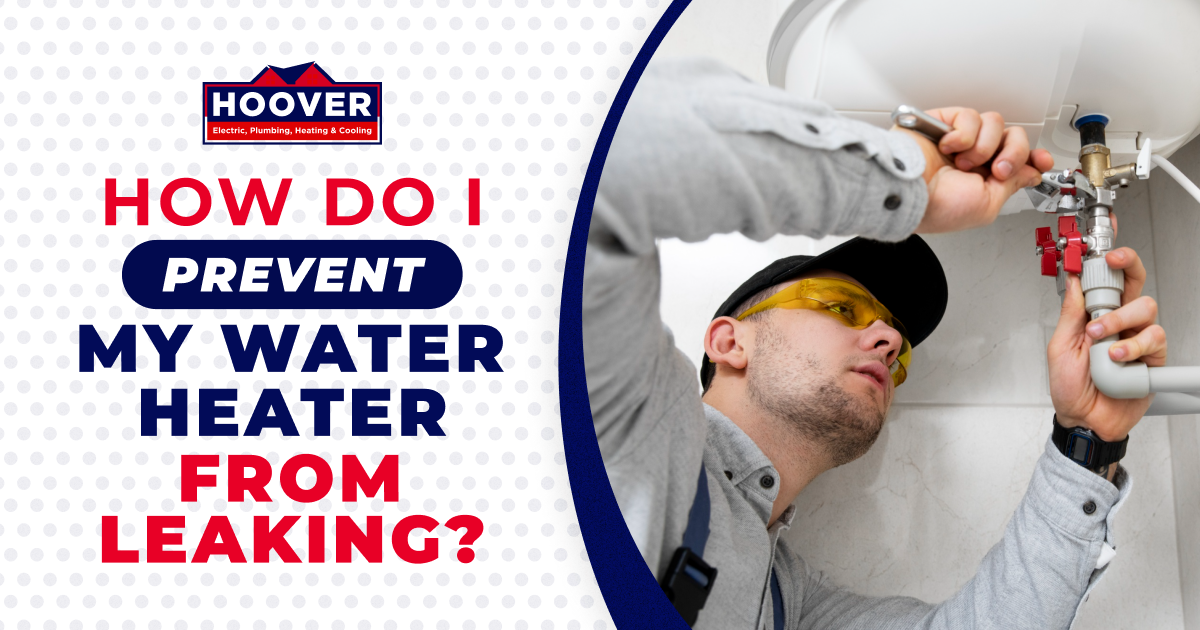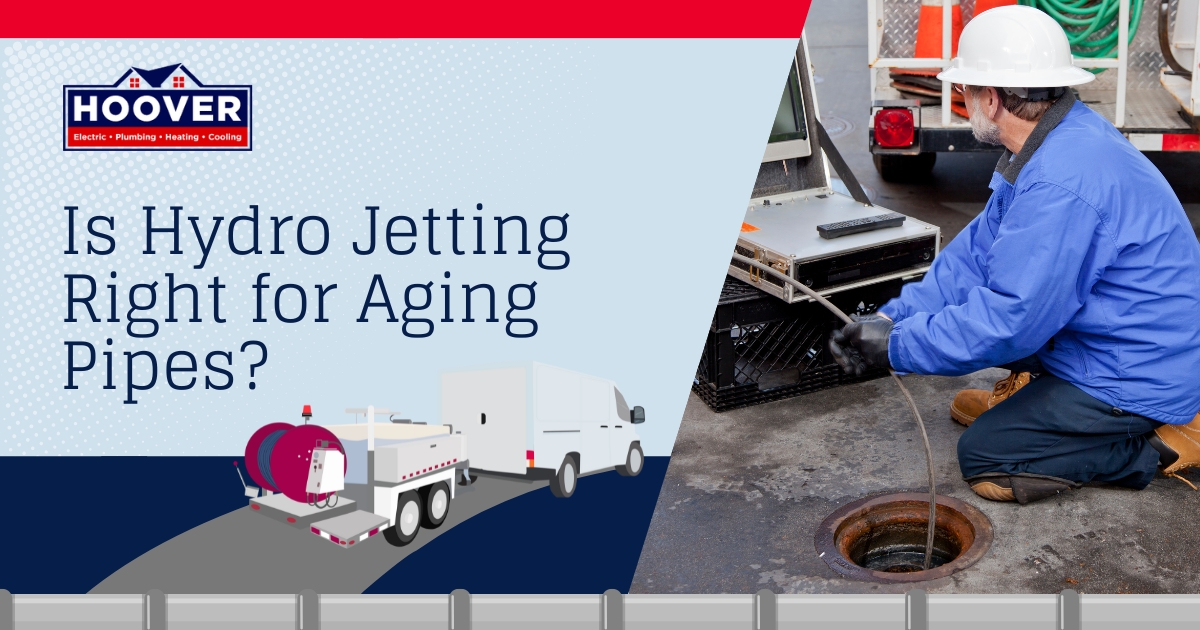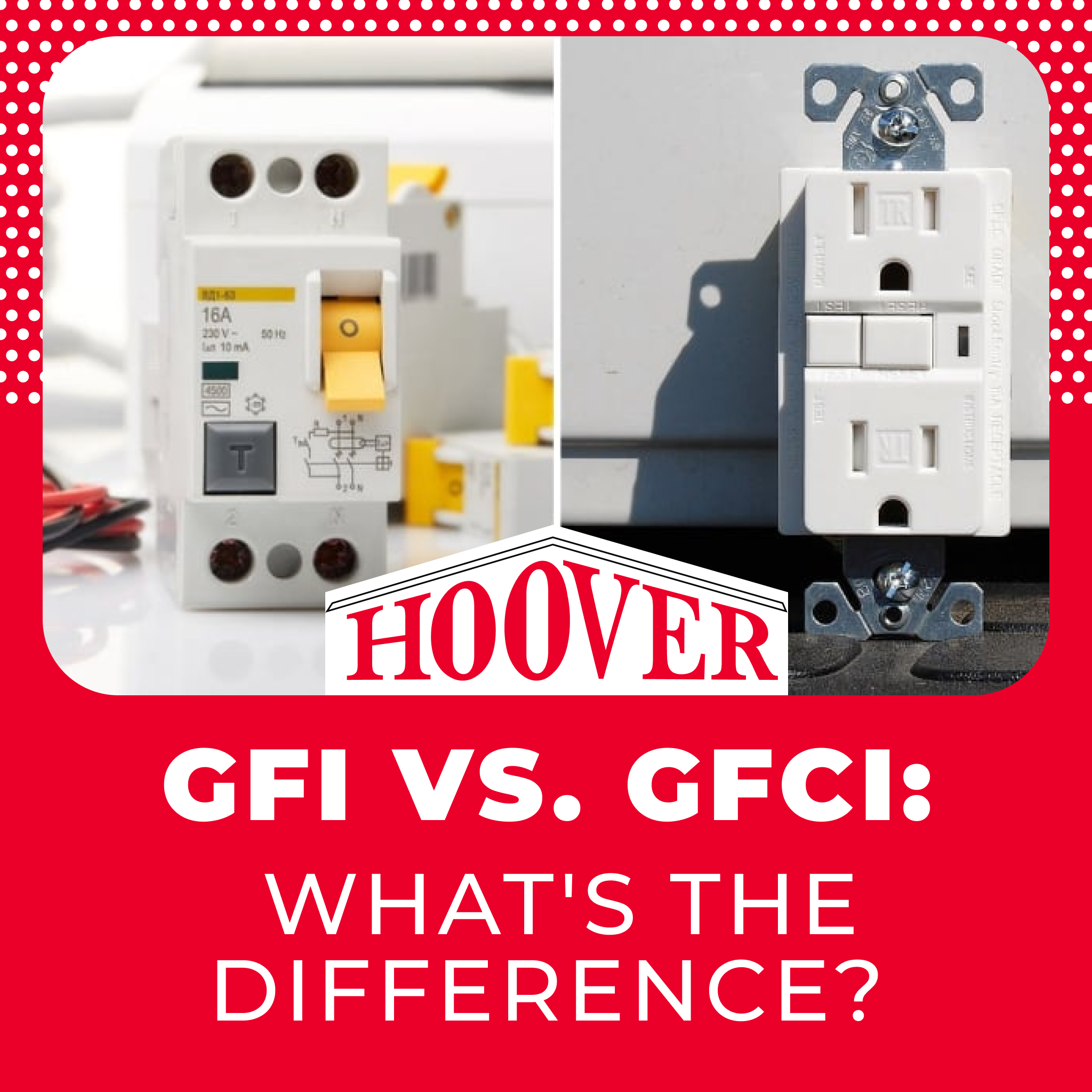
Finding a water heater leaking means you have a serious problem, but it can be prevented. The appliance can hold a lot of water to meet your hot water needs. However, there shouldn’t be water on the outside of it. You’ll have a messy cleanup if water puddles at the base. In this article, we’ll look at how to avoid a leaking hot water heater and answer common questions related to this problem, including whether you need a repair or water heater replacement.
Best Ways to Prevent a Water Heater Leak
You don’t have to deal with a time-consuming cleanup or expensive repair. Water heater leaks are not inevitable. By taking these steps, you can avoid stress and inconvenience and keep the system in top shape:
- Schedule Routine Maintenance: A licensed plumber should inspect your water heater at least once a year. They can check for signs of wear and tear. For example, a corroded or loose connection can precede a leak. A technician follows a detailed checklist to find issues and take steps to correct them so you never find your water heater leaking.
- Check the Water Heater’s Pressure Relief Valve: The temperature and pressure relief valve (T&P valve) releases pressure if the tank gets too hot or the pressure increases to unsafe levels. Otherwise, you may end up with a water heater leaking from the relief valve or a burst tank. To test the valve, find it on the side of the tank. Then, pull up or push down on the valve handle. Hot water should flow from the overflow pipe. If no water is flowing, call a plumber to replace the T&P valve.
- Flush the Water Heater Tank: A tank flush should be part of a plumber’s annual maintenance service. Over time, sediment builds up in the tank from hard water minerals and other impurities. The sediment can harden in the tank, which causes the water heater to work harder and less efficiently. It can also cause corrosion that shortens the system’s life. If you’re comfortable doing so, you can drain the tank yourself. This can be done by attaching a garden hose to the drain valve at the bottom. Next, open a nearby hot water tap and open the drain valve. Make sure to have a bucket underneath it and avoid contact with scalding water. Let the system drain until the water flowing from the valve is clear.
- Place a Drain Pan Under the Unit: A drain pan contains a leak rather than prevents it. To do its job, the drain pan must be installed correctly. Place the shallow tray under the water heater. It should be connected to a drain pipe so when water collects inside, it drains out of your home. Hire a trained plumber to ensure the drain pan is correctly installed.
- Inspect the Water Lines Connected to the Unit: Common sources of water heater leaks include the pipes connected to the appliance. Leaks can also come from worn fittings and valves. When inspecting connections, look for any that need to be tightened. This can often resolve a small leak. While you’re at it, check for signs of corrosion and replace any rusted connections. Using a flashlight, look to see if your hot water heater is leaking from the bottom.
- Know How to Use the Shut-Off Valve: Knowing where the valve is and how to turn it off won’t prevent a water heater leak. However, it enables you to quickly stop the flow if the water heater is leaking, preventing water damage to the floor and other parts of your home.
- Replace the Anode Rod: The anode rod inside your water heater attracts minerals to reduce buildup on other parts of the system. In the process, the rod deteriorates over time. A plumber should inspect and replace the anode rod every few years to prevent the tank from corroding, cracking, and leaking.
Frequently Asked Questions
What could be causing my water heater to leak?
First, you need to verify it’s your water heater that’s leaking. Condensation can sometimes form because the water in the tank is hot and the room may be cold. It will develop evenly across the tank surface after you wipe it down. But if your hot water heater is leaking, the causes can include:
- Loose fittings or connections on cold water inlet or warm water outlet pipes.
- A faulty T&P valve or temperature setting that is too high.
- The water heater tank is cracked, which requires water heater replacement.
- A loose or broken drain valve.
- Damage from hard water minerals inside the tank.
- Cracks caused by heat-induced expansion of water and metal.
Does a leak require water heater repair or replacement?
If the leak is caused by a loose or faulty connection or bad valve, small parts can be replaced to repair the water heater. However, you’ll need a water heater replacement if the tank is cracked or badly corroded.
Is a water heater leak dangerous?
A water heater leak risks a flood, mold growth, and damage to floors, furnishings, and structural materials. Bacteria and viruses can spread in standing water, posing a health threat. A fire can occur if a water leak occurs near wires or electrical components. At the very least, the leak can increase your utility bills and reduce water pressure.
Can I protect my home from a water heater leak?
A water heater leak must be dealt with promptly. Otherwise, there could be serious water damage to the flooring (adding a water sealant coating can protect it if you don’t catch a leak in time). Particle board is a type of wood that water heaters often sit on; water can quickly soak it and cause it to collapse. Replacing the board with a drain pan protects your floor and home.
Should I repair or replace my water heater?
Gas water heaters can last up to 12 years. An electric model can last up to 15 years. However, the decision to repair or replace your system depends not only on its age but the cost of repairs, the scope of the problem, and whether the unit is energy-efficient enough. A plumber can determine if it’s more cost-effective to install a newer, more efficient model.
Call Hoover for Water Heater Maintenance, Repair, or Replacement
Quickly repairing a leaking water heater can prevent major damage. At Hoover, our licensed plumbers can fix many types of problems but must replace a water heater with a cracked tank. A leak is one of the most common water heater issues. Our technicians quickly evaluate your system to determine if a repair is worth it. They provide high-quality water heater replacement if necessary, which can save you money over time. To learn more or request service in your Southeast Michigan home, call us at (586) 576-9243.


